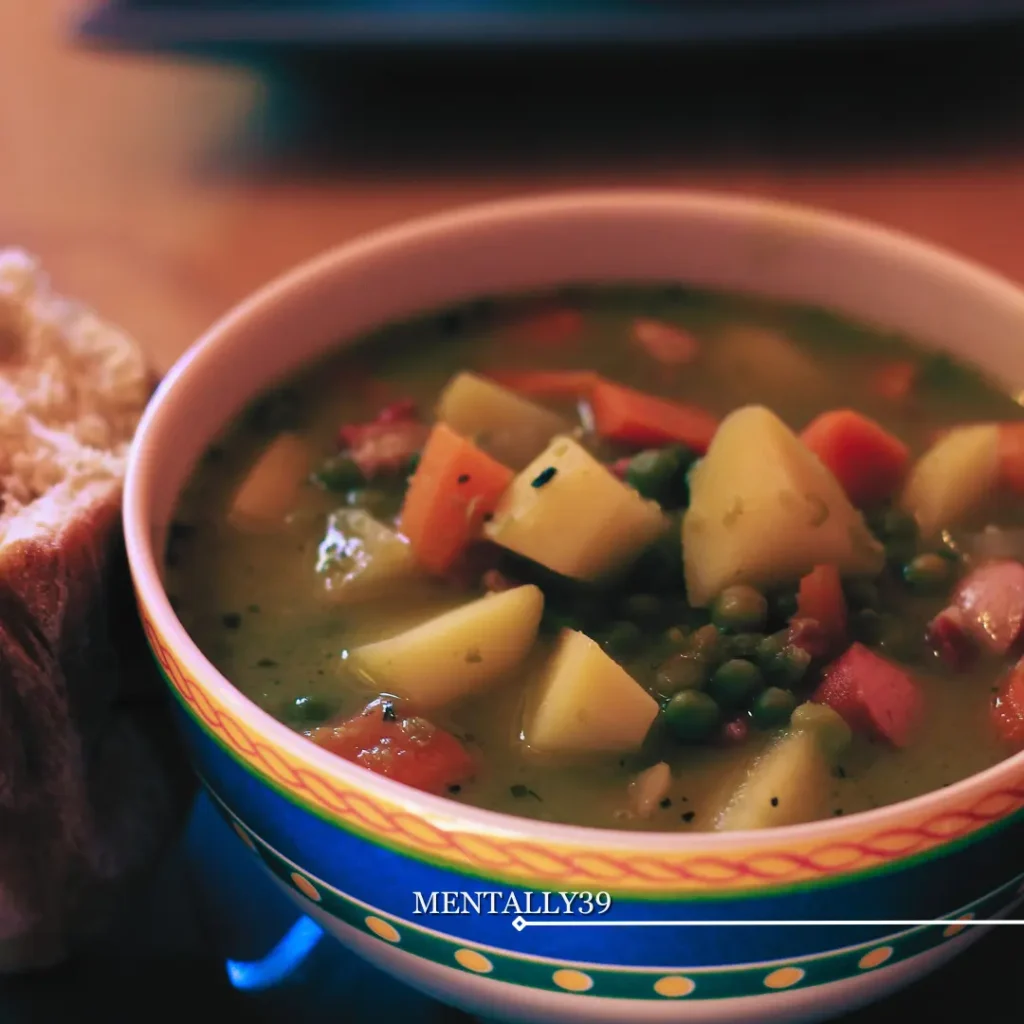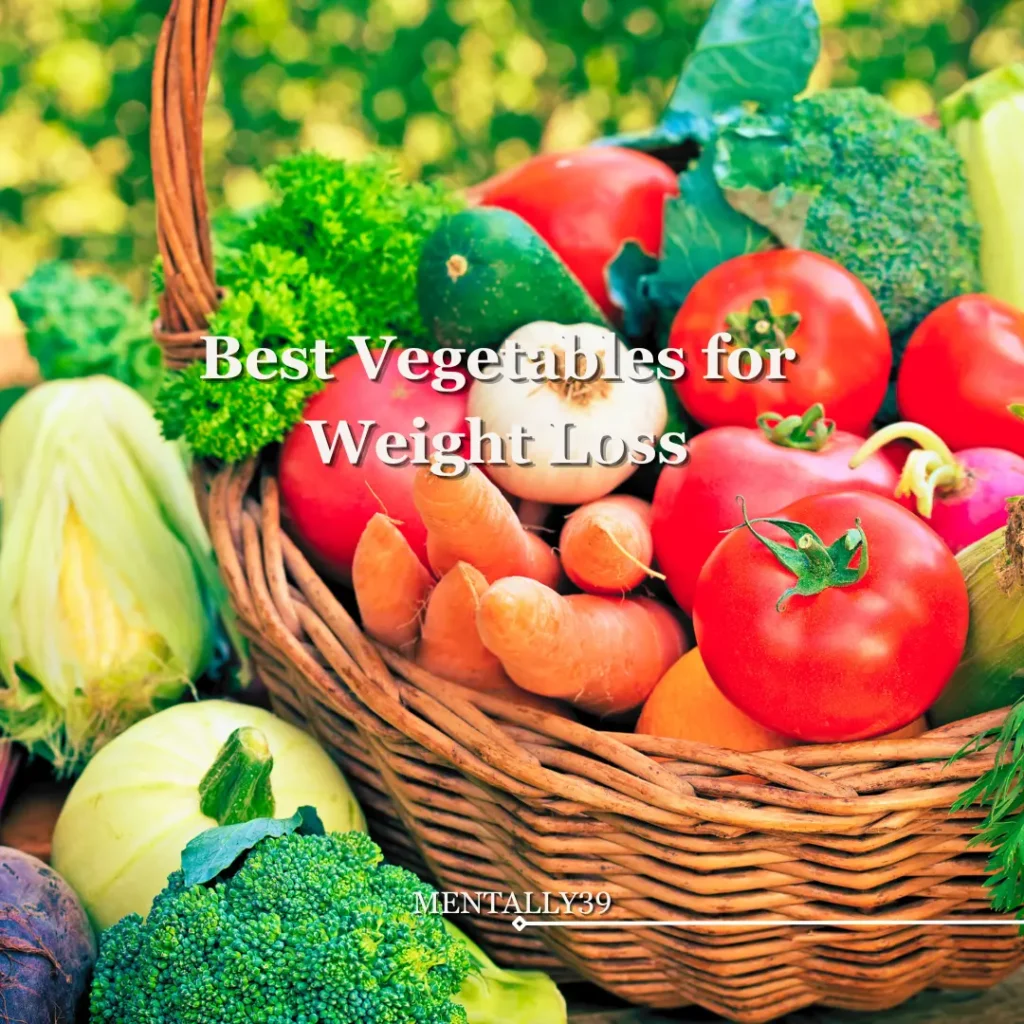When it comes to weight loss and creating a healthy lifestyle that lasts, eating plenty of vegetables in your diet is a tried and true strategy. Vegetables are low-calorie and packed with fiber, water, and essential nutrients. They can help you feel full and satisfied while providing your body with the nourishment it needs. What can vegetables help you lose weight? That is all going to depend on your goals; however, some veggies are generally considered more beneficial for weight loss due to their low-calorie and high-nutrient content. This article will explore the best vegetables for weight loss and how to incorporate them into your meals.
Table of Contents
How can vegetables help lose weight?
There are several reasons why veggies are good for weight loss:
1. Low in calories
Most veggies are low-calorie, which means you can eat a larger serving size without consuming too many calories. This makes you feel satisfied and full without exceeding your daily calorie limit. If you are looking for fat loss, aim for around a 500-700 calorie deficit.
Also, remember you can’t control where you lose body fat. We all want to burn belly fat; unfortunately, our bodies don’t work like that. Keep in mind that if you dip your veggies in or drown them in ranch or other dressings, you are adding a lot of calories and defeating the purpose.
2. High in fiber
Incorporating a variety of vegetables into your daily meals can greatly contribute to achieving and maintaining a healthy weight. These natural, nutrient-dense foods are an excellent dietary fiber source, promoting satiety and preventing overconsumption.
3. Promote weight loss
Many vegetables contain compounds that can boost metabolism and promote weight loss. For example, Cauliflower and broccoli, which belong to the cruciferous vegetable family, are abundant sources of carotenoids (beta-carotene, lutein, zeaxanthin), a compound that has been shown to have anti-cancer properties and may help reduce body weight. When you add vegetables with a high-quality protein, such as Greek yogurt, you will feel full longer.
What are the best vegetables for weight loss?
1. Cauliflower
Cauliflower is one of the better veggies. It is a versatile vegetable that is low in calories and high in fiber. It can be used as a substitute for rice or flour, making it a great option for those following a low-carb or gluten-free diet. Cauliflower is also rich in vitamins C and K, making it a nutritious choice for weight loss.
Additionally, cauliflower can be added to stews, enhancing their flavor and adding a nutritious element to the dish. Cabbage, another cruciferous vegetable, is also an ideal dietary option for weight loss due to its low-calorie and high-fiber content.
Like cauliflower, cabbage is rich in phytonutrients that lower inflammation and fight cancer. Incorporating cabbage into your meals can help you stay full with fewer calories, supporting your goals.
Cauliflower’s neutral taste and versatility make it an excellent replacement for starchy foods in many recipes. It can be mashed, riced, roasted, grilled, or used as a base for pizza crusts and other innovative dishes. So, it is a perfect ingredient for those who love to experiment with their cooking.
2. Bell Pepper
Bell peppers are not only colorful and delicious but also high in fiber. They are packed with vitamins A and C, essential for a healthy immune system.
For optimal health benefits, it’s recommended to regularly include a variety of bell pepper colors in your diet. Each color provides a unique set of nutrients, so consuming a mix of them ensures that you get a wide range of nutrients.
Some people, myself included, can not eat bell peppers—other peppers I can. Still, bell peppers are one the better vegetables for you, if you can tolerate them.
Bell peppers can be enjoyed as a nutritious snack, a flavorful addition to salads and wraps, or as a delicious ingredient in cooked dishes. One cup of raw red peppers contains 3.2 grams of fiber, making them an excellent source of dietary fiber.
3. Broccoli
Broccoli is a cruciferous vegetable known for its numerous health benefits. It is high in fiber, making it a great choice for weight loss. Broccoli is also a good source of vitamins C and K, folate, and potassium. Enjoy steamed or roasted broccoli as a side dish, or incorporate it into stir-fries and soups. Again keep in mind, if you drown broccoli in cheese or dip, you are defeating the purpose.
4. Zucchini
Zucchini is a summer squash that is low in calories and carbohydrates. It is a great source of vitamins A and C and potassium. Did you know that zucchini and spaghetti squash are both great sources of dietary fiber? This nutrient supports healthy digestion and regular bowel movements. Additionally, fiber contributes to feelings of fullness and satisfaction, which can be helpful for weight management.
Zucchini can be spiralized into noodles, grilled, or added to stir-fries for a nutritious, low-calorie meal. Zucchini noodles, known as “zoodles,” have become a low-carb and gluten-free pasta alternative. They are the perfect vessel for all your favorite sauces and can be enjoyed guilt-free due to their low calorie and carbohydrate content.
Incorporating zoodles and spaghetti squash into your meals allows you to indulge in a satisfying pasta-like experience while maintaining a healthy and weight-conscious diet. Grilled Zucchini and squash are a summertime staple and, again one of the best vegetables for weight loss.
5. Brussels Sprouts
Brussels sprouts are considered one of the best vegetables for weight loss, provided you can tolerate them. This cruciferous vegetable is packed with nutrients and is an excellent source of vitamins C and K, as well as fiber. You can roast, sauté, or steam to enhance their flavor and make them a delicious addition to your meal prep.
Brussels sprouts contain compounds like glucosinolates and sulforaphane that have been shown to have cancer-preventing properties. Studies have linked these compounds to inhibiting the growth of cancer cells and reducing the risk of certain types of cancer.
Leafy Vegetables for Weight Management
6. Spinach
Spinach is a nutrient-dense leafy green that is high in vitamins A and C. It is also a good source of iron, which is essential for energy production and metabolism. Spinach is rich in antioxidants like lutein and zeaxanthin that protect cells from free radicals and reduce the risk of chronic diseases.
Spinach is a nutritious vegetable that is beneficial for weight loss. It contains thylakoids, which are compounds that can reduce cravings. Additionally, it is a great source of magnesium, which is essential for several bodily functions.
7. Kale
Despite being the butt of many jokes, Kale is also one of the better vegetables. Kale is another leafy green that is packed with nutrients. It is high in fiber, making it a perfect addition to your weight-loss diet. Kale is also rich in antioxidants and vitamin K, which are important for bone health. Enjoy kale in salads, roasted as chips, or blended into smoothies.
Incorporating kale into one’s diet on a regular basis can have a positive impact on reducing chronic inflammation within the body. This is due to the presence of anti-inflammatory compounds such as quercetin and kaempferol, which are naturally found in kale. Including kale as part of a balanced and nutritious diet is highly recommended to reap the benefits of its anti-inflammatory properties.

Can soups with vegetables aid in weight loss?
Yes, soups made with vegetables can be a great addition to your weight loss diet. Here’s why:
1. Vegetable-based soups
Soups that are primarily made with vegetables are high in nutrients and can support weight gain. They provide a good source of vitamins, minerals, and fiber without adding excessive calories to your diet. Many vegetables used in soups, such as tomatoes, carrots, and leafy greens, contain heart-healthy nutrients like antioxidants, potassium, and prebiotics. These can help lower blood pressure, reduce inflammation, and support cardiovascular health. When buying soups, check the nutrition facts and labels
Immune Support: Vegetables like bell peppers, and broccoli are rich in vitamin C and antioxidants, which help boost the immune system and protect against infections.
2. Reduced calories and high in nutrients
Learning that vegetable-based soups are a healthy and smart weight-loss option may interest you. These soups are packed with essential nutrients that your body needs to function properly while also being low in calories. Incorporating these soups into your diet can nourish your body while shedding some excess pounds.
3. Help you feel full
Soups can help you feel full and satisfied due to their high water and fiber content. This can prevent overeating and contribute to healthy weight loss.
To ensure maximum benefits, it’s recommended to either prepare homemade soups or carefully inspect the labels when selecting pre-made soups. Some pre-packaged soups may have elevated levels of sodium or added sugars. Therefore, it’s essential to exercise caution. Opting for vegetable-based soups can provide a tasty, nutrient-dense meal that fosters good health and wellness.
What are the health benefits of eating vegetables?
In addition to aiding weight loss, including vegetables in your diet offers numerous health benefits:
1. Vitamins and minerals
Incorporating a wide variety of vegetables into one’s diet is very important when it comes to supporting optimal health. These nutrient-dense foods provide an abundance of essential vitamins and minerals, including beta-carotene and carotenoids, that are vital for various bodily processes. For instance, vegetables are an excellent source of vitamin C, which is a potent antioxidant that supports immune function and helps to protect the body against illness and disease.
Additionally, they are rich in vitamin A, which is crucial for maintaining healthy eyesight and skin, and potassium, which is necessary for proper muscle and nerve function. Furthermore, vegetables are a great source of folate, a B vitamin that aids in energy production and helps to produce healthy red blood cells. By regularly consuming a variety of vegetables, one can ensure that they are adequately nourishing their body and optimizing their overall well-being.
2. Reduced inflammation
It has been found that there are specific vegetables, such as bell peppers, that contain high levels of antioxidants. These valuable nutrients have been shown to be effective in reducing inflammation throughout the body.
Chronic inflammation can lead to the development of various health conditions, including heart disease, diabetes, and obesity. Therefore, it is important to incorporate these antioxidant-rich vegetables into your diet to promote overall health and well-being.
3. Blood sugar management
Vegetables, especially those high in fiber, can help regulate blood sugar levels. You can maintain stable blood sugar levels by including vegetables in your diet, reducing the risk of developing insulin resistance and type 2 diabetes.
In conclusion, incorporating a plant-based diet into your meals is an effective strategy for weight loss and overall health. Whether you enjoy eating vegetables raw in salads, cooked in stir-fries, or blended into soups and smoothies, they are a low-calorie, nutrient-dense addition to any meal.
If you aren’t the biggest vegetable fan, make a green smoothie with leafy greens, fruit, and protein powder. What’s more, a plant-based diet can be helpful for weight loss. Adding a variety of non-starchy vegetables like broccoli, and tomatoes, as well as starchy vegetables like sweet potato, can aid in weight loss.
There are many other vegetables to try that are not listed here. While technically a fruit, certain peppers like chili peppers can help burn fat due to the capsaicin.
There are also cucumbers, tomatoes, beets, asparagus, and others. On a balanced diet, vegetables should make up the largest portion of your plate. These are my best vegetables for weight loss. Just keep the ranch to a bare minimum, if any.
Start including a variety of vegetables in your diet today to reap the many health benefits and achieve your weight loss goals.

20+ Years as a Special Education Teacher
NASM Certified Nutrition Coach,
Certified Trauma Informed Trainer
Mindset and Motivation Master Life Coach
